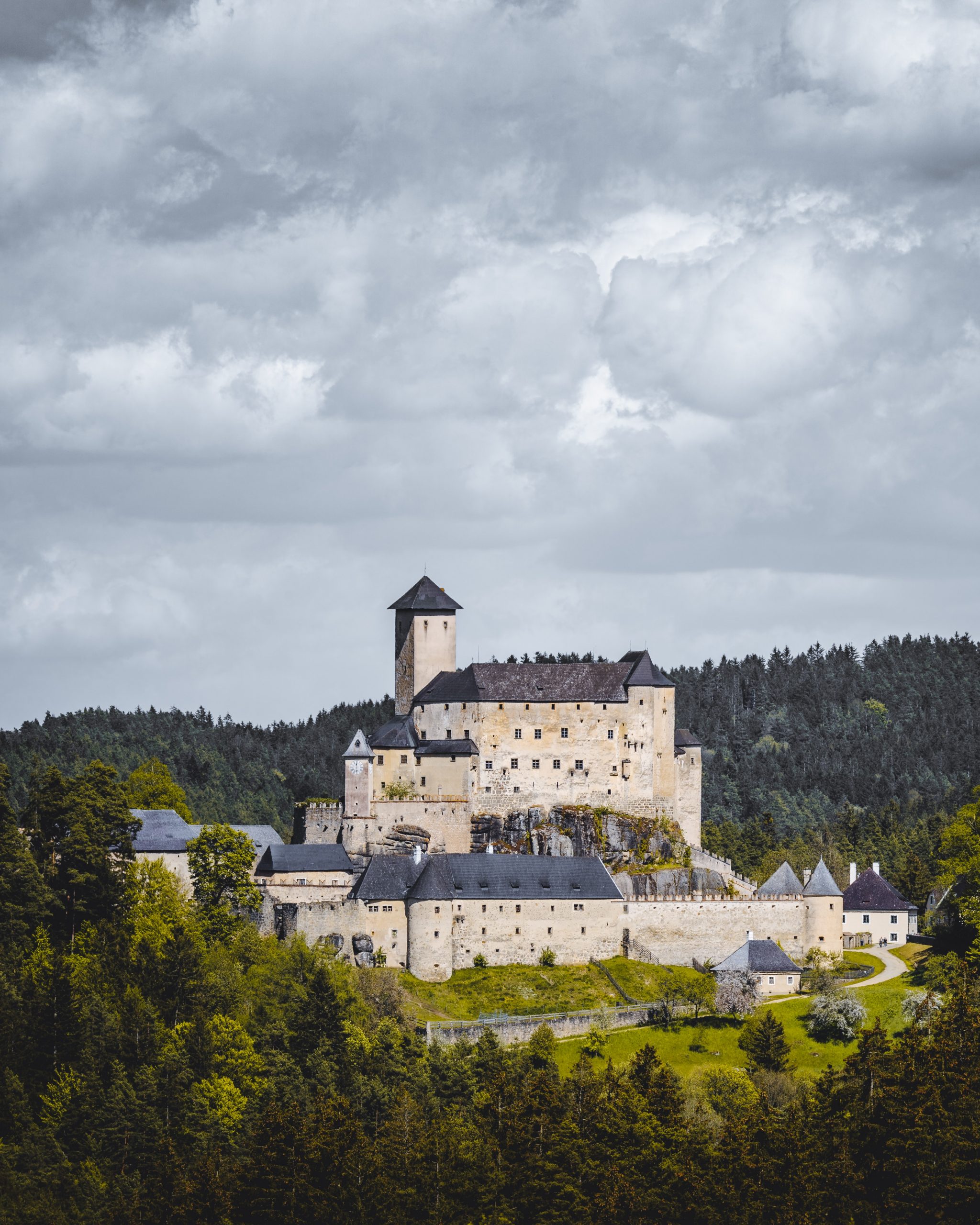The kingdom as Father’s gift (Luke 12:32)

Do not be afraid, little flock, for your Father has been pleased to give you the kingdom (Luke 12:32).
That’s a promise that’s worth exploring. How does our Father give us his kingdom? Who is the little flock? Why might it be scary?
The entire story of Scripture is held in these words.
How our Father gives us the kingdom
It was always God’s plan to give us the kingdom. Our Father created us in his image, as royal children sharing in our Father’s dominion. He found this arrangement to be very good (Genesis 1:25–31). It pleased him to give us the kingdom in the beginning.
We were living in the royal garden as guards and gardeners of the royal presence, until we tried to dethrone God and take the realm into our own hands. That’s when the conflict began. We still answer to our Father, but he no longer trusted us to guard his presence (Genesis 2–3).
Some of the family left God’s presence to create centres of their own and enforce their own justice, but the Lord gave life to those who called on his name (Genesis 4). When the distinction between these two groups broke down, the whole earth was corrupted with violence (Genesis 6). Our Father intervened (Genesis 7–8), but it pleased him to replant his kingdom through Noah (Genesis 9).
The nations went their own way (Genesis 10), still trying to take heaven’s authority into their hands (Genesis 11), so it pleased our Father to promise the kingdom to Abraham (Genesis 12). By the end of Genesis, there’s a little flock of 70 who acknowledge the Shepherd of Israel (Genesis 48:15; 49:24).
In Exodus we see God rescuing his flock from enslavement to a human kingdom, establishing them as his kingdom through the Sinai covenant. Their Father was pleased to give them the kingdom:
Although the whole earth is mine, you will be for me a kingdom of priests and a holy nation (Exodus 19:5-6).
Is he not your Father, your Creator, who made you and formed you? … For the Lord’s portion is his people, Jacob his allotted inheritance (Deuteronomy 32:6, 9).
Yet Israel struggled to be a kingdom under God’s reign, as the kings of the nations tried to conquer them. At the request of his little flock, God anointed a king to lead them (Judges 8:23; 1 Samuel 8:7). David won many battles, but the fighting could not sustain the kingdom. Most of the kingdom was taken from Solomon (1 Kings 11:9-13, 29-35). Israel fell (2 Kings 17) and Judah too (2 Kings 25). Then there was no kingdom representing God’s reign on earth.
For the moment, God had given dominion to powers that did not serve him (Daniel 2:37-38; 4:32), but the promise of the kingdom remained. One day God would remove the authority from the beasts and give it to someone like a Human Descendant (7:14). In this Human Descendant, God’s holy people would receive the kingdom (7:27).
Jesus was a descendant of King David to whom the Father had promised the kingdom forever (2 Samuel 7:14–16). But Jesus made no attempt to claim the kingship; he believed the Father would reveal him as the anointed ruler (Matthew 16:17).
The Human Descendant was not seeking the kingdom for himself, but for everyone. He is the restoration of what it means to be human, representing heaven’s reign on earth. It is in giving us the king that the Father has been pleased to give you the kingdom.
His little flock
Those who recognize our Heaven-appointed king are the little flock to whom the Father has been pleased to give the kingdom.
It was a little flock in the beginning. It was a little flock after the flood. It was a little flock in the days of Abraham. It was a little flock in Pharaoh’s time. It was two little flocks after Solomon, until Assyria devoured one. Then the rest of the little flock was herded to Babylon. A mere remnant returned to rebuild Jerusalem and wait for the restoration of the kingship.
It was an even smaller flock that followed God’s Messiah and heard Jesus declaring the replanting of God’s reign (Luke 9:20, 27).
But when God raised him out of death and gave him all authority, people from all nations began to recognize him as Lord. The little flock began to grow, for the Father had given us the kingdom in him.
Fear not
Why might this good news of the kingdom be scary?
There’s a lot of conflict on earth for power. In general, the biggest army wins. It’s scary to be the little flock.
The rebellion against God’s authority introduced enmity (Genesis 3:15), domination (3:16), struggle (19), murder (4:8), retribution (4:23), violence (6:11), slavery (9:25), war (10:9-10), the attempt to overthrow God’s authority (11:4). Abraham came under attack (14:1-16). Israel was constantly attacked by kingdoms seeking control of God’s world.
Jesus expected to face death (Luke 9:22). If God was restoring his kingdom, the rulers who oppressed God’s little flock would crucify his Messiah, treating him as a threat to their power.
Fear not, he told them. Human force is not in control of God’s world. The Ancient of Days gave life in the beginning, and he would restore life in his crucified Son. The Human Descendant would be raised up to share the throne at the right hand of the mightiest ruler the earth has ever seen (Luke 22:69).
Fear not, he said. Your Father has been pleased to give you the kingdom. God’s reign returns to earth not by force but in the one our Father raises up to reign.
So, don’t be frightened if you find yourself suffering at hands of those who take advantage of you for their own power. Fear not! The Father has been pleased to give us the kingdom. Fear not! The reason we struggle and suffer without fighting back is that God has been pleased to give the kingdom to the little flock that already recognizes the king.
The cross is a scary path, but it’s not a dead end.
Do not be afraid, little flock, for your Father has been pleased to give you the kingdom.
What others are saying
Joel B. Green, The Gospel of Luke, NICNT (Grand Rapids, MI: Eerdmans, 1997), 495:
It is likely that we are to understand the kingdom as having already been given — undoubtedly, then, a reference to the ministry of Jesus among them.
In spite of their seeming diminutive presence (“little flock”), the disciples are nonetheless the recipients of God’s dominion. This makes possible lifestyles that are not consumed with anxiety and fear but, instead, have as their perpetual objective the service of the kingdom. The nature of this kingdom-service is spelled out clearly in this co-text, demonstrating that the kingdom of God is not only a gift but also an obligation. Rather than being occupied with the buildup of treasures with an eye to self-security in this life (v 21), disciples need to be concerned with ensuring that they possess treasures in heaven. Therefore, seeking the kingdom (v 31) is tantamount to setting one’s heart on the kingdom (v 34), and the consequence of this orientation of life is a heavenly treasure that is neither subject to the exigencies of earthly existence nor endangered by the unexpected intervention of God.
Tom Wright, Luke for Everyone (London: SPCK, 2004), 153:
The kingdom of God is, at its heart, about God’s sovereignty sweeping the world with love and power, so that human beings, each made in God’s image and each one loved dearly, may relax in the knowledge that God is in control. Reflecting on the birds and the flowers isn’t meant to encourage a kind of romantic nature-mysticism, but to stimulate serious understanding: God, the creator, loves to give good gifts, loves to give you the kingdom — loves, that is, to bring his sovereign care and rescue right to your own door.
John Nolland, Luke 9:21–18:34, WBC (Dallas: Word, 1993), 696:
“To give you the kingdom” probably alludes to Dan 7:14, 27, where the kingdom is promised in vision to the saints of God.
Related posts
- Son of man: suffering king (Mt 16:21–17:23)
- Divine sovereignty and human suffering (Zech 14:1-5)
- Participating in the counter-cultural kingdom
- With you in my Father’s kingdom (Mt 26:29)
- What is our role in his kingdom?
- A grassroots kingdom (Mt 10:9-15)
Related podcasts
- The world is God’s kingdom (Gen 1–11)
- Abraham and the obstacles to God’s kingdom (Gen 12–25)
- Why I’m seeking the kingdom
Seeking to understand Jesus in the terms he chose to describe himself: son of man (his identity), and kingdom of God (his mission). Riverview Church, Perth, Western Australia
View all posts by Allen Browne



